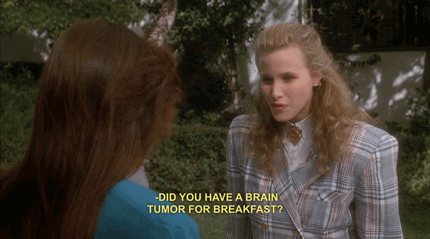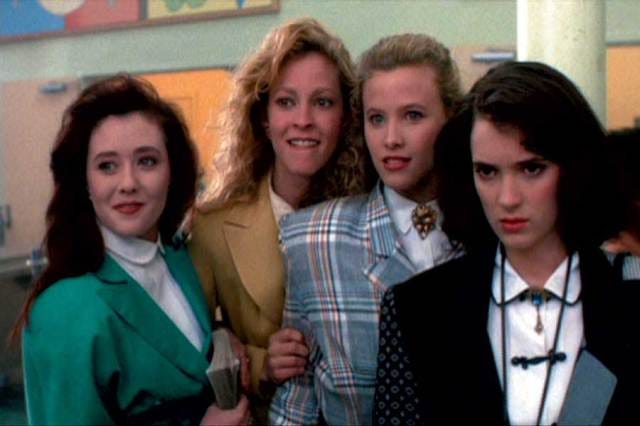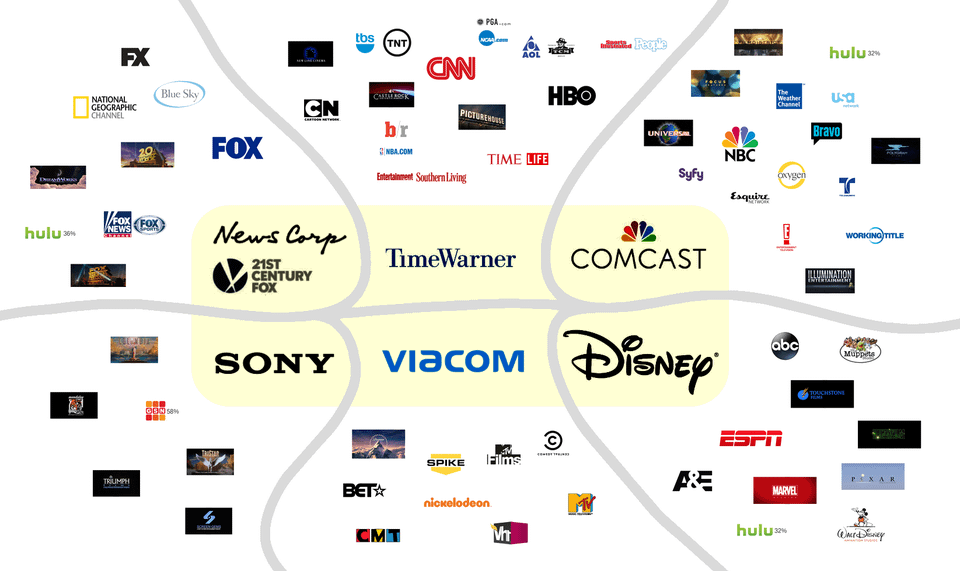What’s Your Damage, Hollywood?
Why Everyone—Not Just Filmmakers—Should Be Paying Attention to Their Screens Today
Hollywood’s in panic mode—and not just because of AI. Productions are collapsing, music jobs are vanishing, and now the entire global screen industry is staring down the barrel of a political stunt with world-changing consequences.
Last night, Donald Trump proposed a 100% tariff on foreign-made films—a move so sweeping, vague, and reckless it threatens to blow a hole in the entertainment economy, crash the digital trade consensus, and rattle the internet’s very foundations.
This isn’t just a Hollywood problem. It’s a you problem.
Because the shows you watch, the creators you follow, the subscriptions you pay for, and even the cloud services you rely on—are suddenly at risk of becoming collateral damage in a culture war wrapped in a trade war wrapped in a campaign stunt.
In this article, THE BEE breaks it down:
– What this tariff really means
– Why it’s nearly impossible to implement
– How it could fracture the open internet
– And what Nova Scotia—of all places—can teach America about what happens when you mess with the screen industry.
This matters. Not in a few years. Not after some policy review. But now.
The credits haven’t rolled on this story yet—but the tension is rising, fast.
If you work in the screen industries in Canada, yesterday was the worst day of your career— so far…
and not because of what happened, but because of what might happen next.
Nothing tanks a production pipeline like uncertainty. And what Donald Trump unleashed with a single tweet wasn’t a policy—it was chaos. A 100% tariff on “foreign-made films” isn’t just a political stunt. It’s a direct threat to every Canadian who’s ever set foot on a set, sent an invoice from a post studio, or dreamed of telling a story that might cross a border.
Producers can plan around a bad deal. They can’t plan around the unknown. And now, the entire Canadian film and television industry is staring into a void—contracts stalled, budgets frozen, projects shelved—not because the rules changed, but because no one knows what the rules are.
Haven’t heard the status of your show? This is how collapses begin. Not with a bang, but with a shrug, a delay, a ghosted email.
If you’re in the industry, this is your warning shot. If you’re outside it, this is your explainer. And if you’re in power? Here’s the news from Nova Scotia’s experience. This is a bigger deal than you would imagine.
This section will be a series of update links as Trump inevitably complexifies and complicates this story:
What’s your damage Hollywood?
Last week Ted Gioia reported on a town hall held in Hollywood.
They held a town hall meeting in Hollywood a few days ago—and the level of fear permeating the room was off the charts.
They didn’t even talk about AI. That’s because they have so much else to worry about.
It didn’t help that just a few hours before, new numbers on film production revealed big declines in every category. During the first quarter, only 5,295 total shoot days took place in SoCal—that’s down 22% in just one year.
Those were the worst numbers ever measured by FilmLA, the non-profit that tracks these things.
Even worse, shoot days for TV series—typically the most secure payday in Hollywood—are down a stunning 58% since 2021. During the first three months of 2025, only 13 TV pilots were shot in LA.
That’s another all-time low.
“A few footprints at Grauman's Chinese Theatre will survive as archaeological reminders of an earlier day when actual movie stars walked these streets.”
Music jobs in Hollywood are even harder to find. According to Peter Rotter and Jasper Randall, who hosted the event:
Booked recording days for scoring stages in L.A. have collapsed, from a high during Peak TV in 2022 with 127 days to only a bleak 11 this year so far. They also explained that scoring work costs two-thirds less in Vienna, Austria, and 90 percent less in Bratislava, Slovakia.
The Hollywood Reporter covered this gloomy town hall meeting the next day. They summed up the mood in the room with a striking headline—Hollywood was in danger of becoming the new Detroit auto business.
Hollywood Has Been Trumped
Very few situations are so bad that help from the government can’t make them worse in some way. Especially if that help comes from Donald Trump.
Last night, presumably after a round of golf and a big supper Trump tweeted, er X’d out the message the screen industries have be dreading since election day…
The announcement of a 100% tariff on foreign-made films has sent shockwaves through the global film industry. The proposal aims to bolster domestic film production by penalizing movies produced abroad, but it has raised numerous concerns and questions about its feasibility and potential repercussions.
Key Issues Highlighted in Recent Reports
Economic Impact on Global Film Industry: The proposed tariff could significantly increase the cost of foreign films entering the U.S. market, potentially doubling expenses for studios and distributors. This move threatens international film industries that rely on the U.S. market for substantial revenue.
Challenges for U.S. Studios: Many American studios outsource parts of their production to countries offering tax incentives, such as Canada, the UK, and Australia. The tariff could penalize these studios for utilizing international resources, complicating their production strategies and financial planning.
Legal and Implementation Uncertainties: Experts question the legal authority to impose such tariffs on intellectual property like films. Additionally, the lack of clarity on how the tariffs would be implemented—whether based on filming location, production company nationality, or distribution channels—adds to the confusion.
Potential Retaliation and Trade Wars: Countries affected by the tariff may retaliate with their own trade barriers, leading to a broader trade conflict that could impact various sectors beyond the film industry.
Impact on Streaming Services: Streaming platforms like Netflix and Disney+, which often feature international content, could face increased costs and content shortages, affecting their subscriber base and market competitiveness.
Why a “Movie” Tariff Is Difficult to Implement
Let’s just skip by what Trump means by “movies” for a minute. Most people assume he means all production — TV shows, series, specials, movies, documentaries, factual shows. Everything. Yes, I’m even looking at you, Curse of Oak Island.
Complex Production Chains: Modern films often involve international collaboration, with different aspects of production—such as filming, editing, and special effects—taking place in various countries. Determining which films qualify for the tariff would be a logistical nightmare.
Intellectual Property Considerations: Unlike tangible goods, films are intellectual properties, making it challenging to apply traditional tariff frameworks. The legal basis for taxing such content remains ambiguous.
Consumer Impact: Tariffs could lead to higher ticket prices and subscription fees, burdening consumers and potentially reducing demand for both domestic and international films.
Diplomatic Relations: Imposing tariffs on cultural products can strain diplomatic ties, as films often serve as tools for cultural exchange and soft power.
Trying to solve a real problem with the wrong tool
While the intention behind the proposed tariff is to rejuvenate the U.S. film industry, the complexities of modern film production, legal ambiguities, and potential international fallout make its implementation highly problematic. A more effective approach might involve enhancing domestic incentives for film production and fostering international collaboration rather than imposing punitive measures.
Will Tariffs Impact Your Digital Life?
You know I’m deeply into it when I go and start reading source documents.
Digital Trade Under the USMCA: A Fragile Firewall
Though it’s fraying around the edges, the United States-Mexico-Canada Agreement (USMCA) still stands as the primary legal architecture governing North American trade—and perhaps no section of it is more sharply worded or jealously guarded than the chapter on digital trade.
And that’s not an accident.
In a world increasingly built on code, media, and algorithms, digital trade is the nervous system of the modern economy. It doesn’t just connect banks and e-commerce platforms. It underpins Hollywood and Netflix, YouTube creators and TikTok stars, online classrooms and Zoom meetings, cloud computing and AI labs. It’s the glue—and the gasoline.
The reason this section is so uncharacteristically clear in a trade deal otherwise full of shades of gray is simple: if digital trade becomes taxable or tariffable, we risk unraveling the entire borderless internet.
Pandora’s Box: Why This Matters
Digital goods—whether a streaming film, a Spotify playlist, a Fortnite skin, or a corporate AI license—don’t exist in one country. They are everywhere and nowhere. They’re stored in the cloud, routed through servers in Virginia or Vancouver, rendered on devices made in Taiwan, and paid for with a tap from Halifax or Guadalajara.
To tax a digital good, you have to ask:
Where was it made?
Where was it consumed?
Who owns it?
Who profits from it?
These are metaphysical questions in a world where your streaming subscription may be billed through Ireland, hosted in Oregon, and viewed on a Korean TV by a Mexican viewer in Toronto. The moment a government tries to answer those questions with laws, the whole illusion of the frictionless digital world begins to break.
That’s why the USMCA explicitly prohibits duties on digital products transmitted electronically. It’s not a loophole. It’s the firewall that lets the modern economy operate at all.
The Trump Tariff Threat: Playing with Fire
The only certainty here is uncertainty. Trump will for sure tune, change, abandon, double down on, complexity, and chaos-ify his comments on a ‘movie tariff’. But that’s not hopeful or helpful. It’s an industry that needs stability more than anything else.
Trump’s floated idea of a 100% tariff on foreign-made movies—particularly those made in Canada—could run headlong into this section of the USMCA. If a film is shot in Vancouver but streamed via a California-based Netflix server to an iPhone in Florida… is it foreign? Is it American? Is it tariffable?
Nobody knows. That’s the point. And opening that door means everything becomes negotiable:
YouTube creators might be taxed by country of origin.
Game developers could be penalized for outsourcing assets abroad.
Streaming libraries might shrink to avoid cross-border complexity.
Cloud computing—the infrastructure of AI, media, finance, and more—could become segmented by region, breaking the global web into gated national fiefdoms.
The Bigger Picture: A Threat to the Open Internet
This isn’t just a trade issue. It’s a civilizational one.
The internet grew on the back of open protocols, decentralized infrastructure, and largely untaxed, unregulated flows of digital content. Messing with that—to score points for Hollywood or punish Canadian production incentives—is like trying to fix a stereo with a sledgehammer.
The digital section of the USMCA is there because cooler heads realized no one benefits if nations start weaponizing entertainment and the internet for trade wars.
If Trump or any future leader undermines that consensus, we don’t just risk a trade dispute.
We risk Balkanizing the internet—splintering it into tariffed, censored, nationalized chunks.
And that’s not just bad for business. It’s bad for culture, for freedom, and for the very idea of a connected world.
What does it mean?
The short answer is, no one knows. It’s impossible to understand at this point what this means, what it includes, what it would, in the language of tariffs, count, measure, weigh, and tax.
We can’t know if it will be changed tomorrow, if it will flip back and forth. We don’t know the unintended consequences.
The Hollywood Reporter must have been anticipating this. Of all the world’s media outlets they have their report on this news up long before dawn in Culver City.
And then, with no answers or insight to be offered, they followed up with a list of questions later this morning.
The View From Nova Scotia
It wouldn’t seem obvious that Nova Scotia would have much insight to offer here. But we do have two key pieces of information.
First, the production we call “Service Production” and Hollywood traditionally calls “Runaway Production” is a fickle business. High Beta, in business and finance terms. Small changes in the broad market whiplash into huge changes in this business.
It now seems clear that Canada’s “Service Production” business will be devastated this year. Possibly moving closer to zero production than any previous year, even through COVID. It’s not because of the tariff exactly. No one knows how or when that might work out. It’s because of the chaos and uncertainty introduced in the system. It’s a big, fast-moving business that can handle many challenges. But it can not handle fundamental risk.
The second thing we can offer is from experience.
What Trump’s Movie Tariff Plan Could Learn from Nova Scotia’s Film Tax Debacle
When Nova Scotia’s austerity-minded Liberal government tried to gut the film tax credit in 2015, it thought it was making a simple financial decision. The program, they argued, was too expensive, too generous, and not a priority. What they didn’t realize—until it was too late—was that they weren’t just cutting a line item. They were attacking a cultural identity, an aspirational dream, and one of the most emotionally resonant industries in the modern economy. Within days, they had a full-blown rebellion on their hands.
Now, in 2025, Donald Trump is floating tariffs on non-American media—a policy that may seem, at first blush, like a patriotic attempt to "protect American content." But it risks triggering the same furious backlash Nova Scotia faced. Only this time, it won’t be a small Atlantic province in turmoil—it could be all of Hollywood, every streamer, every viewer, and every state with jobs tied to the creative economy.
Lesson 1: The Screen Industry Isn’t Like Other Industries
Auto parts can be outsourced quietly. Aluminum plants shut down with a whimper. But movies and TV shows? They shut down with a megaphone. Actors, writers, directors, editors, and gaffers don’t just make noise—they make media. They control the airwaves. They rally with hashtags and helicopters. It’s called drama production for a reason.
And crucially, they’re culturally beloved. In Nova Scotia, when the tax credit was slashed, every voter had a dog in the fight. A cousin on set. A daughter chasing the dream. A favourite show with a local connection. The backlash was instant, massive, and theatrical—because the industry itself is made of storytellers.
Lesson 2: You Can’t Just “Save Money” by Cutting Culture
The Nova Scotia government thought voters would see the tax credit as a handout to elites. Instead, it was seen as an attack on hope. The government didn’t save face—they lost the election. Trump’s tariffs, intended to “protect” America’s content, might instead punish the very export that has made America the most powerful cultural force on Earth. The screen industry is America’s soft power, and turning it inward—taxing it, isolating it—risks undermining the very thing that has made the U.S. a global cultural empire for 80 years.
Lesson 3: This Industry Is Full of Fighters
Nova Scotia saw the largest labour rallies in its modern history—led by an industry many politicians wrongly assumed was too soft to fight. The Premier, famous for his rigidity, was forced into a public retreat. And still, it wasn’t enough. He lost the next election, hard. The new government swept in on a platform that made support for the screen industry a central plank of the province’s economic future.
Now apply that to Trump: imagine a political firestorm not just from Democrats and cultural critics, but from Georgia, New Mexico, New York, and every state where film and television jobs have lifted local economies. Imagine a conservative governor in a production-heavy state having to choose between loyalty to Trump and loyalty to thousands of voters whose paychecks come from "Hollywood."
Bottom Line:
The Nova Scotia film tax debacle is a case study in how not to mess with media. What looked like a small budget line became a symbol of cultural betrayal. Trump may think a tariff on foreign content will stoke nationalism. But if he underestimates the emotional and economic power of the screen industries, he’ll learn what Nova Scotia’s government did: this industry writes the script—and if you try to cancel the show, the people might just cancel you.
RELATED:
THE BEE has been researching and writing about this for a while
Canada’s Film Future: Boom or Bust
As a favourite filming location for Tinseltown's big-budget productions, Canada has always been ready for its close-up—even when it's doubling for somewhere else! But what happens if there is suddenly a 25% tax on Canadian service production?
Lights, Camera… Tariff! Can Canada’s Screen Industry Survive?
Canada may not be the 51st state. But it acts as a stand-in for states all the time in film and TV.
THE SOLUTIONS:
The Future of YouTube is Our Future
DISCLOSURE: I own Goog stock - the company that owns YouTube. But if I could Parlay Pick any stock it would be YouTube (more detail below)
You and Me, and the CBC: From Unity to Diversity
The CBC has gone from the voice of unity to the enforcer of division—how did Canada’s broadcaster become a preacher of repentance?
Can We Solve Canada's Entertainment Industry Monopoly Problem?
Denise Hearn & Vass Bednar's new book, The Big Fix, explores how Canadian government policies entrench monopolies, stifling innovation and competition. Nowhere is this more in our faces than in Canada's dying entertainment industry; an apocalypse of giant zombie companies eating our brains, creative workers, and cash - where cultural ideology, quotas, a…
The Canadian Connection
Canada’s entertainment industry is deeply entwined with America’s, amplifying the challenges of the blockbuster era. Canadian creators often rely on American platforms for franchising, distribution, and exposure, placing them at the mercy of foreign gatekeepers. While initiatives like the Canada Media Fund and CRTC regulations aim to support local talent, they struggle to compete with the gravitational pull of Hollywood, and bureaucrat “pick a winner” systems, influenced by lobbying of all sort, are ill-equipped to weigh in on either rapidly changing industries or identity politics.
The Canadian Media Producers Association (CMPA) has reported apocalyptically on the steep decline in Canadian content. Yet, the Canadian system appears to be in denial. Organizations like the CMF, Telefilm, CBC, and government agencies have doubled down on diversity initiatives at the expense of addressing the core issue: oligopoly in the entertainment industry. Without tackling this monopoly problem, other ideological or political goals risk becoming distractions from the systemic failures undermining the industry.
For instance, reports such as the CMPA’s Profile 2024 highlight declining film and TV production activity in Canada, despite growing national and global demand. The absence of strategies to address consolidation, alongside the focus on diversity-issue-driven content, limits the ability to create impactful projects that resonate with broader audiences. This dynamic underscores the need for industry leaders to recalibrate priorities and confront structural issues.



















There's a technical term for what Trump is doing to America, it's called enshittification. Where a good product or service is initially offered (and America was a good neighbour once) and then its quality is eroded in order for the producer to make more money. Typically it's used for digital content and websites but I think it applies more generally to the whole Trump vibe.
From his perspective though it make sense. New ideas are anathema to strongmen and fascists. The Great Firewall of China basically restricts content from the rest of the world for the same reasons. Can't have those damn subtitled movies you have to read enter either with radical new ideas since they've spawned commies, hippies and counterculture warriors from the 60's to now. Intelligence is a threat to MAGA. Science (the reason the internet was created was to share and collaborate on large data sets and papers efficiently) and culture (all the production you're talking about here) can challenge the status quo. Reporting can highlight the problems. Does a report from Alberta on the upcoming G7 Conference count as tariffed content? I mean filmed in Canada with a bunch of international leads, right?
He wants the world to stop and stay in some previous incarnation. Only that's impossible. You've argued for it too, or a "return" to the old ways but at least you acknowledge that it will never return fully. The move back to previous states may be impossible due to entropy. Sure, that's not strictly a social principle, but it's nonetheless there. Those new ideas are what keeps us going. It's change and surfing that change that will really propel you far, but even then there needs to be periods of rest between. One of the things we forgot to build into the internet was rest. I mean, I guess we had it when the modems were only 2800 baud. Now,
Oh, and major points for using "Heathers" stills. Love those 80's lapels and the whole dark ethos but I thought you didn't.